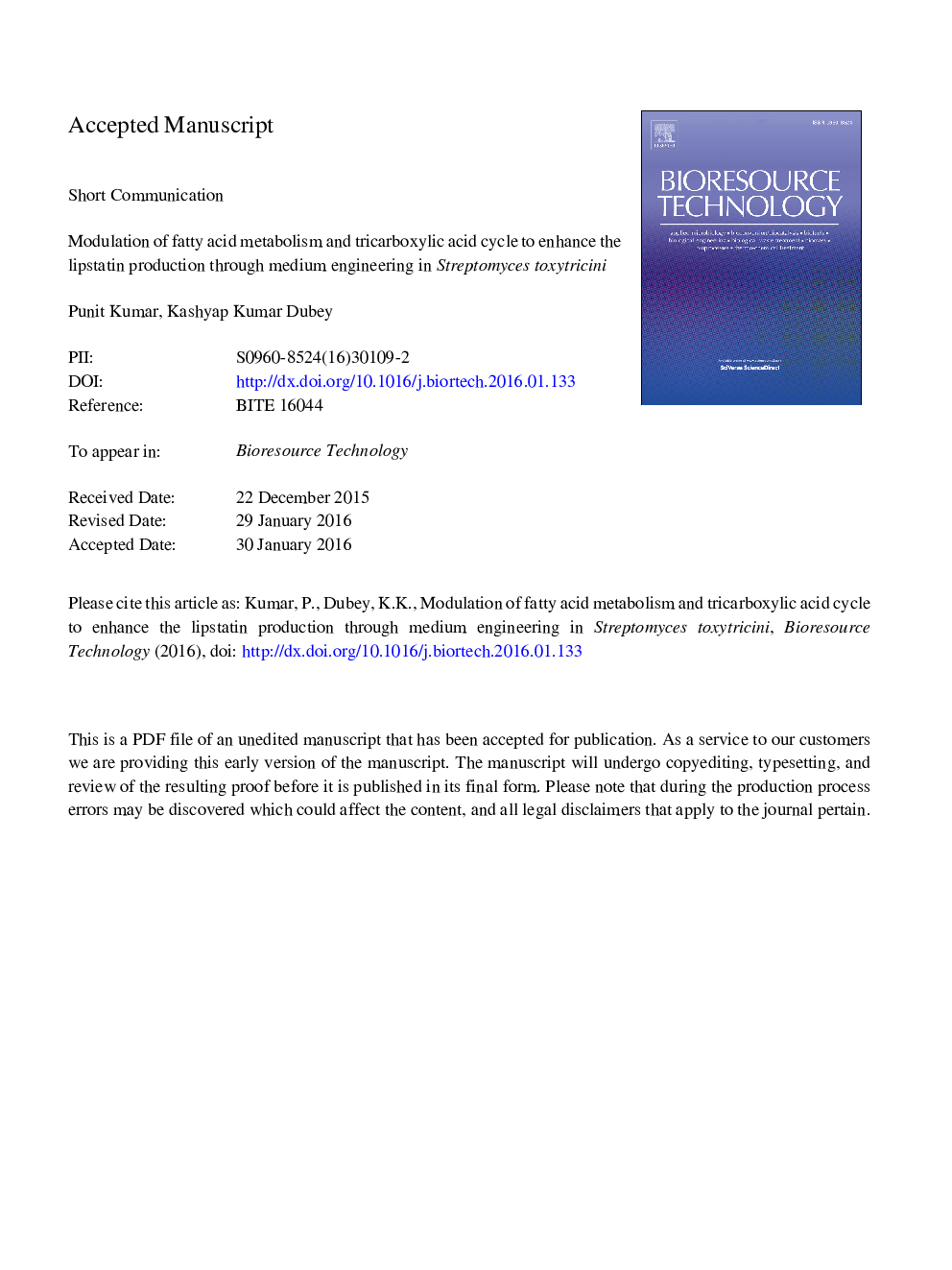| Article ID | Journal | Published Year | Pages | File Type |
|---|---|---|---|---|
| 7071066 | Bioresource Technology | 2016 | 20 Pages |
Abstract
This work investigated the potential of medium engineering to obtain maximum biomass, non-conventional carbon sources for lipstatin production and modulation of tricarboxylic acid (TCA) cycle to promote lipstatin synthesis. It was found that 2:3 carbon and nitrogen ratio, produced maximum biomass of 7.9Â g/L in growth medium and 6.6Â g/L in pre-seed medium. Among the studied non-conventional carbon sources i.e., soya flour 40Â g/L and sesame oil 30Â mL/L were found producing 1109.37Â mg/L (1.24-fold of control) and 1196.75Â mg/L (1.34-fold of control) lipstatin respectively. Supplementation of TCA cycle intermediates revealed that NADH and succinic acid showed lipstatin production to 1132.99Â mg/L and 1171.10Â mg/L respectively. Experimental outcome was validated in 7Â L bioreactor and produced 2242.63Â mg/L lipstatin which was â¼14% higher than shake flask.
Related Topics
Physical Sciences and Engineering
Chemical Engineering
Process Chemistry and Technology
Authors
Punit Kumar, Kashyap Kumar Dubey,
